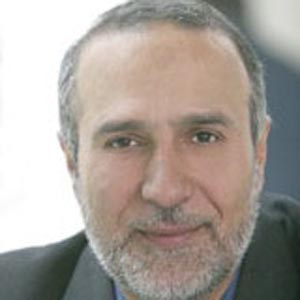Idealistic Proposals Cannot Break the Impasse

Since the Ninth Administration started its term, our relations with West entered a vicious circle which harms the interests of both sides, especially Iran. What is the reason? West has tied better relations with Iran to the transparency and non-deviation of its nuclear program. Iran, nevertheless, distinguishes these two, though it lacks the stamina to instill this mentality. Meanwhile, West is the key decision-maker in the relations.
In the course of nuclear negotiations, Iran has not really benefitted IAEA reports. The situation may even turn more uncomfortable with the new head of UN watchdog starting his term. The new circumstances have limited Iran’s choices in the international scene and Iran is now like a bird that has to fly with one wing. Russia and China have also proved that they use Iran as a card in their game vis-à-vis West, which of course is a legitimate tool in foreign diplomacy. United States decision to shelve missile defense shield plan may show us how Russia plays its Iran card.
Some may say that Iran has achieved its nuclear goals and built the second uranium enrichments site while the world could not stop its progress. True it is, and nuclear accomplishments are an honor for every Iranian, but the nuclear issue is not the only concern of our foreign diplomacy. As a country on the path towards development, we need to have relations with powerful countries of the world, free from discrimination of course. Thirty years after the revolution West still supplies our technological needs.
To show how our overemphasis on the nuclear program has harmed us, referring to our fiscal state, the inflation and our global rank is enough. On the nuclear issue, time may serve Iran’s goals; however, the reality is that while advancing the nuclear program, other industrial sections have been ignored, Iran’s choices have become limited and the government cannot even convince the Iranian citizens why its relations with West have deteriorated.
Geneva talks could be a chance to improve Iran-West relations, but since Tehran has stipulated that the second proposal package and its other proposals should be discussed, the relations may face further problems. Iran’s proposals address two issues. One is that Tehran is ready to purchase 19.5 percent enriched uranium from other countries. The question is if Iran is ready to make this deal, why does it insist on continuing the enrichment process? Second point about the proposal is Iran’s demand for a denuclearization campaign. This is an idealistic approach towards international affairs. In politics the realities count. We should know to what extent we can further the denuclearization process. Which of our partners –for example China and Russia- are ready to cooperate with us? Iran’s has not even managed to accomplish its ’denuclearized Middle East’ project. Why have we presented proposals that are unfeasible?
I am not rejecting the proposals; rather, I am talking about their viability. I think Iran’s proposals, though ideally constructive, suffer contradictions and cannot be materialized. Naturally, as long as West doubts the nature of Iran’s nuclear program, it will not sell any nuclear material to Iran. I am not optimistic about a break in the impasse after the Geneva negotiations.

